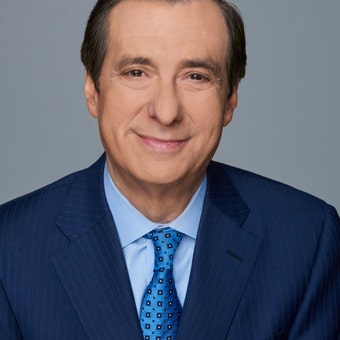By most conventional measures, President Biden should be riding pretty high.
He is about to score his first major legislative victory, pumping nearly $2 trillion—a staggering figure—into the economy to deal with the pandemic. A new ABC poll shows 68 percent of those surveyed approving of his approach to the crisis, a figure that includes 35 percent of Republicans. And he says every American will be able to get a vaccination by the end of May.
Yes, but: The Senate and House passed the giant packages without a single Republican vote. What happened to Biden’s talk of bipartisanship?
The Biden team felt that Republican offers were way too low for any meaningful compromise. They were wary, after Biden’s experience in the Obama administration, of having marathon talks that ultimately led to nothing. They were also hellbent on moving quickly, given the fragile state of the economy and the ticking clock on jobless benefits.
Yes, but: Republicans say the bill is a Christmas tree with all kinds of costly ornaments that have little to do with the pandemic.
That’s true. There’s $86 billion targeted for a taxpayer bailout of nearly 200 union pension plans on the verge of collapse. And more than $100 billion in tax credits for families with children, which expires in a year but could later be made permanent. That would boost the Democrats’ longtime goal of drastically reducing child poverty.
Republicans haven’t mounted an all-out assault on the Covid bill, as they did on ObamaCare, because they know it’s popular. Plus, elections have consequences.
HOW CUOMO'S MEDIA BOOSTERS ARE JUMPING OFF THE BANDWAGON
Yes, but: Won’t people resent all this extra spending, and couldn’t it overheat the economy?
Funny thing, people tend to like federal spending that benefits them. Six months from now, if the country is largely vaccinated, businesses have reopened and unemployment is down, most people aren’t going to care about the legislative details. But even some liberal economists have warned that the bill could ignite serious inflation. Biden’s gamble is that going big has a greater upside than going too small.
Yes, but: Didn’t Biden have to cave to Joe Manchin? And doesn’t that mean he can blow up any future White House legislation?
In a 50-50 Senate, a moderate like Manchin has enormous leverage, so he was able to get a smaller and shorter package of unemployment benefits. He and a half-dozen other Democrats also made sure there would be no $15 minimum wage. This has ticked off the party’s Bernie wing but may have a hidden benefit: keeping Biden from being pulled too far to the left.
Yes, but: Trump Republicans say Biden is pushing a stunningly liberal agenda on immigration, climate change and other issues. They say he’ll lose support when the scope of his left-wing goals becomes clear.
Well, maybe. It sure may seem that way to conservatives who may like his handling of the pandemic. Just yesterday he created a White House Gender Policy Council. The immigration bill is probably going nowhere. He also wants to push infrastructure spending that could have some appeal to Republicans. But Biden has largely avoided the culture-war stuff, limiting himself to symbolic gestures.
Yes, but: Some conservatives still paint Biden as an elderly, out-of-touch caretaker. And why does he so rarely talk to the press?
SUBSCRIBE TO HOWIE'S MEDIA BUZZMETER PODCAST, A RIFF OF THE DAY'S HOTTEST STORIES
Republicans have had trouble making their negative portrayals stick, in part because the president is such a familiar figure after decades in Washington. He’s not an inspirational speaker, but he was elected with a promise to lower the temperature, which is why you see much more of Jen Psaki and Anthony Fauci on the air. And Biden is sitting on a 60 percent approval rating. It’s a missed opportunity for him to rarely engage with the press—that’s part of a president’s responsibility—but advisers believe this helps with message discipline. That, however, will wear thin over time.
Yes, but:
That’s all we have time for today.










































